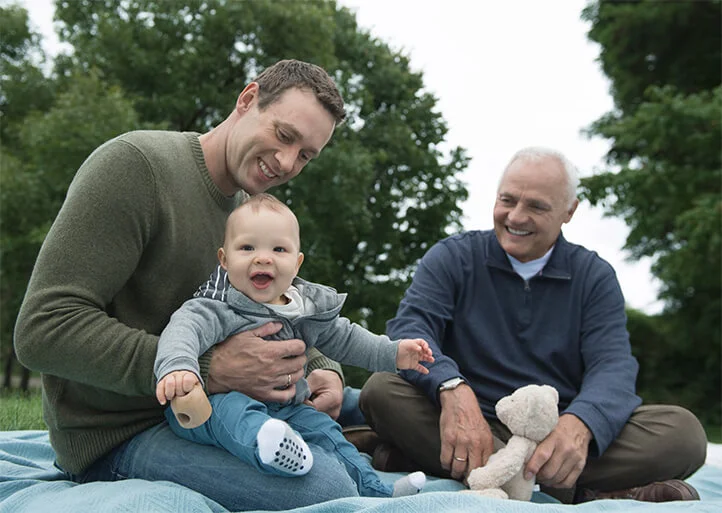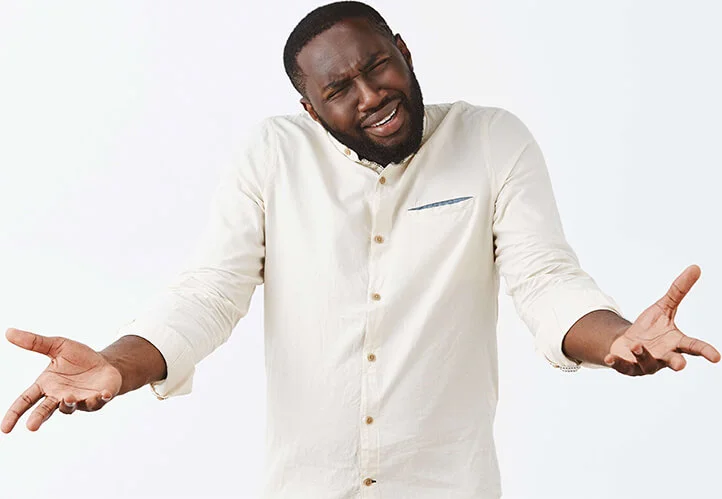For centuries, men’s psychology has remained a mystery to women, and male behavior has often raised many questions and misunderstandings. In today’s world, where the boundaries between gender roles are becoming increasingly blurred, understanding men’s psychology in relationships with women is especially relevant. After all, harmony is possible only with a deep mutual understanding between partners.
The main stereotypes about men’s psychology in relationships with women cover a wide range of beliefs that often distort reality. Let’s look at some of the most common myths:
- Men don’t show their feelings. According to this myth, men are not inclined to share their feelings and emotions. In fact, many of them do express their feelings; they just do it differently than women.
- Men are only interested in sex. While sexual attraction plays an important role, many men also seek emotional closeness, understanding, and partnership.
- Men don’t appreciate romance. In reality, many men love romantic gestures and moments; their idea of romance may just differ from the female perspective.
- Men don’t listen. This stereotype suggests that men don’t pay attention to a woman’s words. However, the inability to actively listen is not gender-specific.
- Men want to control the relationship. Although this may be true in some cultural and social contexts, not all men seek to dominate in relationships.
- Men don’t need compliments. They absolutely do! Like women, men also want to feel valued and desired.
- Men don’t cry. Emotional expression is not gender-specific. Society often imposes the standard of “strength” on men, which prevents them from showing vulnerability.
- All men love sports. A person’s interests and hobbies are not determined by their gender.
- A man must dominate in a relationship. In modern relationships, many couples strive for equality and partnership.
- Men don’t care about their appearance. Many men pay attention to their style, health, and appearance.

Biological and Social Nature of Men
Human behavior, including relationships between the sexes, has been the subject of study and debate for centuries. What influences men’s psychology more—the genetic code embedded in them at birth, or the sociocultural factors that shape them during their upbringing?
Understanding a man requires a deep analysis of both his biological and social nature. These two components interact to create the complex fabric of male psychology in relationships. Biology provides the foundation upon which primary instincts and reactions are formed, while society overlays a layer of beliefs, values, and expectations associated with the male role.
Hormonal and Biological Factors Affecting Male Psychology
- Testosterone. This hormone, produced in the testes, is often associated with male aggression, competitiveness, and sexual desire. High levels of testosterone can enhance aggressive behavior; however, the connection is not straightforward and is influenced by other factors.
- Vasopressin. This hormone plays a role in social behavior, including relationships with women and fatherhood.
- Endorphins. These are natural “happiness hormones.” They can influence mood, stress levels, and feelings of satisfaction in men.
- Cortisol. In response to stress, a man’s body produces the hormone cortisol, which can affect his reactions in difficult situations and during decision-making.
- Brain structure. There are anatomical differences between male and female brains. For example, the area responsible for spatial perception is usually more developed in men, while areas associated with verbal skills are more active in women.
- Size and function of the amygdala (the part of the brain associated with emotions). The amygdala functions differently in men, affecting their response to emotional stimuli.
- Subcortical areas of the brain responsible for aggression and sexual desire. These areas are more active in men, which explains some behavioral differences between the sexes.
- Genetics. Certain hereditary factors, such as a predisposition to aggression or other psychological traits, influence men’s psychology, not only in relationships with women.
These hormonal and biological factors interact with the environment, upbringing, and life experiences to shape the unique psychology of each man. However, it is important to understand that none of these factors dictate behavior directly but rather influence it in combination with other elements.
The Impact of Sociocultural Norms and Expectations on the Formation of Male Psychology
Sociocultural norms and expectations play a key role in shaping men’s psychology. These factors dictate how a “real man” should behave in different cultural and social contexts.
- Role of protector and provider. In many cultures, a man is traditionally seen as the provider and protector of the family. However, not all men manage to be emotionally resilient and physically strong, which can psychologically burden them.
- Emotional restraint. Many cultures perceive the expression of emotions by a man as a sign of weakness. Therefore, men often try to hide or suppress their feelings.
- Dominance. In some cultures, it is believed that a man should dominate in relationships, which can lead to aggressive or controlling behavior.
- Attitude towards sexuality. Depending on cultural and religious settings, men may face various expectations regarding their sexuality—from the need to be polygamous to maintaining chastity.
- Responsibility as the head of the family. In many cultures, a man is regarded as the head of the family, responsible for the well-being of all its members.
- Male camaraderie and peer pressure. Men are often pressured to build relationships with other men based on competition, strength, or other “masculine” characteristics.
- Professional expectations. Men are often associated with certain professions or careers, which can limit their choices and opportunities.
- Attitude towards fatherhood. In different cultures, men have varying attitudes towards the role of a father, which affects their relationships with children and views on parenting.
Sociocultural expectations shape a man’s psychological profile, influence his self-esteem, outlook on life, relationships, and behavior. However, with societal development, these stereotypes and expectations are constantly changing, giving the stronger half of humanity more opportunities for self-expression and self-discovery.

Men’s Psychology in Relationships with Women: Key Male Needs
The psychology of relationships between men and women is a complex interplay of feelings, emotions, and needs. Although each of us is unique, there are certain universal needs that are inherent to most people, regardless of their gender. However, in the context of male psychology, these needs take on particular nuances, shaped by both internal factors and societal influences.
Understanding the basic needs of men in relationships with women can help men recognize their own feelings and desires, as well as assist their partners in creating harmonious and fulfilling relationships.
Physical Intimacy
Physical intimacy and sexuality are important aspects of male psychology and relationships. These needs permeate not only romantic connections but also the overall sense of comfort, security, and acceptance.
- Physical intimacy: This isn’t just about sex. Hugs, kisses, touches, and simple physical presence strengthen the emotional bond between partners. Such closeness creates a sense of security and support, as well as enhances feelings of belonging and love.
- Sexual needs: Sexual attraction and fulfilling sexual needs are key factors in romantic relationships for many men. Sex is not just a physiological act for them but also a way of expressing love, intimacy, and trust.
- Quality over quantity: While some men seek frequent sexual encounters, for many, the quality of emotional and physical contact is more important than the frequency, as deep emotional connection makes sexual moments even more meaningful.
- Affirmation of masculinity: For some men, sex is also a way to affirm their masculinity and self-esteem, especially in cultures where sexual potency is closely linked to male identity.
- Communication and understanding: Honest conversations about sexual needs and preferences strengthen relationships and foster better understanding between partners. Many conflicts in relationships arise from misunderstandings or unspoken expectations regarding sexuality.
Understanding and respecting a man’s need for physical intimacy and sexual fulfillment contributes to harmony and improves the quality of shared life.
Emotional Understanding and Support
At their core, every person longs for understanding and support, and men are no exception. Contrary to stereotypes about the “strong sex,” men also experience a wide range of emotions and need emotional support, especially during challenging times.
- Expression of feelings: In many cultures, men are often taught to hide their feelings or not express them openly. Nevertheless, the internal need to express feelings, fears, joys, or sorrows remains relevant. In relationships, this can mean a need for conversation, listening, or simply understanding.
- Importance of support: When a man faces problems in his professional or personal life, emotional support from a woman becomes a crucial factor in overcoming difficulties.
- Space for vulnerability: Relationships in which a man feels safe and does not hide his vulnerabilities strengthen emotional bonds. Acknowledging his weaknesses, fears, or insecurities can become the foundation for deep trust and understanding.
- Respect: Emotional understanding goes hand in hand with respect. Respect for a man’s feelings, opinions, and views on life enhances his sense of significance and boosts his self-esteem.
- Communication: Open and honest dialogue is a key element of emotional understanding. A man’s ability to express his feelings without fear of criticism creates a foundation for a healthy relationship.
In practice, providing emotional understanding and psychological support to a man can mean simple things: a hug at the right moment, listening after a hard day, or simply affirming that his feelings matter.
Respect and Recognition
Respect and recognition are key elements of human self-awareness. In the psychology of many men, these aspects play a particularly important role, as they are closely linked to their perception of themselves as protectors, providers, and leaders. Understanding and meeting these needs can be the key to harmonious relationships and a man’s emotional well-being.
- Respect for a man’s personal boundaries, opinions, feelings, and choices is the foundation of relationships. It allows him to feel valued and confident.
- Recognition of achievements: For many men, recognition of their professional and personal achievements is of great importance. Praise or approval from a woman is a powerful incentive for further efforts and development.
- Role in the family: Many men strive to be the support and protectors of their families. Recognizing these roles and their value strengthens a man’s sense of responsibility and confidence.
- Participation in decision-making: Allowing a man to participate in making key decisions, whether it is about the family budget or raising children, is also a form of respect and acknowledgment of his competence.
- Constructive criticism: If there is a need to correct a man’s behavior or decisions, it is important to approach it delicately, expressing respect for his feelings and views.
Respect and recognition are not just words or gestures. They are deeply rooted needs that significantly impact a man’s self-esteem, motivation, level of happiness in relationships with women, and life in general. By paying attention to these aspects, a solid foundation for a harmonious union can be created.
The Desire to Be a Leader and Protector
The fundamental desire of many men to be leaders and protectors is deeply rooted in human history and culture. These roles, closely associated with the concept of masculinity, are often seen as important attributes of a man. Let’s explore where this desire comes from and how it manifests in modern relationships with women.
- Historical context: In ancient times, men were often hunters and warriors. They were responsible for protecting their tribes and families from external threats. Over time, society evolved, but the instinctive male desire to protect and lead has remained.
- Social expectations: In many cultures, men are still raised with a spirit of leadership and responsibility. They are expected to be heads of families, make decisions, and take care of the well-being of loved ones.
- Psychological need: Being a leader and protector is also associated with a psychological need for recognition, respect, and self-affirmation. This is a male source of confidence and dignity.
- Manifestations in modern relationships: Today, the desire to be a leader can manifest itself in striving for career growth, making financial decisions, or participating in child-rearing. The desire to be a protector is more often expressed in caring for the physical and emotional well-being of the family.
- The balance of significance: In today’s world, it is important to find a balance between a man’s desire to be a leader and the need for equality and mutual understanding in relationships. A couple can enrich their relationship by sharing responsibilities and making decisions together.

Men’s Fears and Barriers in Relationships with Women
The psychology of men in relationships with women is often hidden beneath layers of socio-cultural expectations and internal beliefs, making it less obvious but no less important. For centuries, men have been raised with certain notions of what it means to be a “real man,” and these stereotypes can influence their self-perception in relationships.
Understanding men’s fears and barriers is key to creating harmony and mutual understanding between partners. Exploring these fears and barriers allows men to open up, trust, and become vulnerable.
Fear of Losing Freedom
One of the most deeply rooted fears many men face in relationships is the fear of losing their freedom. For many, this fear embodies not only the loss of personal space or time but also a deeper threat to their identity or self-esteem.
- Connection with Stereotypes: Traditional socio-cultural roles often portray men as independent, strong, and self-sufficient. Therefore, the idea of being involved in a relationship that could limit this independence causes anxiety.
- Understanding Freedom: For some men, freedom is associated with the ability to make decisions independently, spend time alone or with friends, and have hobbies and activities outside of the relationship. Relationships, especially in their early stages, can be perceived as a threat to these familiar aspects of life.
- Compromises and Decision-Making: The fear of losing freedom may also be related to the need to make compromises or consider the woman’s opinion when making decisions.
Fear of Not Meeting a Woman’s Expectations
Many men in relationships face the fear of not meeting their partner’s expectations. This fear can be related to various aspects of their shared life, whether financial issues, emotional closeness, or even sexual relations.
- Origins of Fear: Men are often expected to be “resilient,” “successful,” and “caring.” Socio-cultural and family norms often create an image of the ideal man that is difficult to live up to.
- Impact on Relationships: The fear of not meeting expectations can lead to avoiding intimacy or even developing defense mechanisms. A man may become more withdrawn, avoid conversations about the future, or distance himself, feeling he cannot live up to the established standards.
To overcome this fear, open and honest communication is essential. A woman can express her real expectations while reassuring her partner that their relationship is based on mutual respect, not striving for perfection.
It is important for a man to realize that no one is perfect, to accept himself with all his strengths and weaknesses, and to strive for personal growth.
Fear of Rejection and Non-Acceptance
For many men, even those who are strong and confident, the fear of rejection and non-acceptance by a woman remains one of the deepest and most troubling fears. Men’s psychology in relationships is particularly sensitive to these aspects due to socio-cultural and personal expectations.
- Roots of Fear: Many men face societal pressure from an early age to conform to certain standards of the “real man.” Rejection or criticism from close people can leave deep scars on a man’s psyche and influence his views and behavior in the future.
- Manifestations in Relationships: The fear of rejection may manifest in avoiding conflicts, constantly seeking approval from the partner, or even hiding one’s true feelings and desires.
- Distortion of Reality: The fear of rejection can sometimes distort a man’s perception of reality, leading him to see signs of non-acceptance where there are none.
Overcoming this fear requires self-reflection, self-acceptance, and a willingness to discuss one’s concerns with the partner. Open dialogue and understanding of the man’s psychology in relationships can help the couple bond and create a solid foundation of trust for their future union.
Fear of Losing Control
The fear of losing control is one of the key dilemmas in men’s psychology when it comes to relationships with women. It is rooted in historical and cultural traditions where men were often assigned the roles of leaders, protectors, and providers.
- Manifestations in Relationships: This fear can manifest as excessive jealousy, a desire to dominate or control the partner, and attempts to avoid or evade discussing serious issues where a man feels his position is threatened.
- Impact on Relationship Dynamics: A constant desire to control can lead to dissatisfaction, frustration, and distancing from the woman. This, in turn, can intensify the man’s fear of losing control, creating a vicious cycle.
- Origins of Fear: The fear of losing control often stems from deeper feelings of vulnerability or concerns related to previous negative experiences.
The process of overcoming this fear begins with self-acceptance, acknowledging one’s feelings, and a willingness to speak openly about them. For many men, this may require time, practice, and possibly professional psychological help.

Men’s Psychology in Conflicts with Women
Conflicts are an integral part of the union between a man and a woman. They can serve as a catalyst for growth and development in a relationship or become a source of friction and disharmony.
Many of us were raised in environments where certain socio-cultural norms were imposed on men: to be strong, not show weakness, and control their emotions. This often affects men’s ability to respond to conflicts adequately without harboring hidden feelings, grudges, or emotional outbursts.
However, understanding how men perceive and react to conflicts can be key to resolving disagreements and strengthening mutual understanding in relationships.
Avoidance and Evasion
In complex and tense situations, many people resort to avoidance and evasion strategies to maintain internal comfort and avoid confronting problems directly. These strategies, while providing temporary relief, rarely offer a long-term solution, as unresolved issues often intensify over time.
Men’s psychology in this context has its own nuances. Due to the socio-cultural norms imposed on men — to be strong, not show weakness, and control their emotions — many choose avoidance strategies to avoid conflicts or expressing their true feelings. This can manifest in the form of ignoring the problem, postponing its resolution, or avoiding serious conversations.
While such behavior may initially seem like a protective mechanism, in the long run, it can lead to tension, misunderstanding, and a deterioration in the quality of the relationship. Here are some of the most common male avoidance or evasion strategies during conflicts with women:
- “Stone Face”: In a conflict situation, many men become impassive and do not show their feelings. This may be a defensive reaction to a potential sense of vulnerability or a desire to avoid escalating the argument.
- Conflict Avoidance: Often, men prefer not to get involved in conflicts at all, avoiding discussing contentious issues or leaving the room. This is linked to a desire to prevent confrontation and maintain inner peace.
- Changing the Subject: Instead of confronting the problem, a man may try to shift the conversation to another topic to avoid further conflict.
- Defensive Aggression: In response to a woman’s criticism or attacks, some men become aggressive. This may be a way to assert control or simply a reaction to a perceived threat.
- Silence: When a conflict reaches a certain point, some men go silent, choosing silence as a way to avoid further confrontation. They feel that any further argument would only worsen the situation.
In men’s psychology, such strategies are often connected with cultural and social expectations of how a “real man” should behave in conflict situations. Understanding this can help a woman better interact with her partner during disputes and strive for healthier and more constructive problem discussions.
Silence and Withdrawal
- Socio-Cultural Norms: Most men believe that showing emotions is not a “manly” trait. They avoid expressing their feelings to avoid appearing weak or inadequate.
- Protection from Vulnerability: For many men, silence is a way to protect themselves from potential vulnerability. They don’t share their feelings to maintain control over the situation.
- Self-Preservation: Some men may believe that any word or action will only worsen the conflict. In this case, silence is seen as a way to prevent further escalation of the dispute.
- Lack of Expression Tools: Sometimes men simply don’t know how to properly express their feelings or thoughts, especially under stress or tension. This can be related to a lack of experience in emotional communication.
- Waiting for the “Right” Moment: A man may feel that now is not the best time to discuss the conflict and prefers to wait until emotions subside to address the issue in a calmer setting.
- Fear of the Wrong Reaction: Many men fear that their reaction to the conflict (especially if it’s anger or irritation) could harm the relationship even more. Instead of risking saying something they might later regret, they choose silence.
Competition and Confrontation
Competition and confrontation play a special role in men’s psychology. These components are based on their biological and socio-cultural characteristics, as well as individual experiences.
- Biological Aspect: Men are evolutionarily inclined to compete for resources, partners, and status. This competition may manifest in modern relationships as a need to dominate or control the situation, especially when a conflict arises.
- Socio-Cultural Influence: Many cultures promote the male role as the leader, protector, and “head” of the family. This often generates the need to prove one’s rightness or point of view, even if it leads to conflict.
- Striving for Understanding: Despite competitive impulses, many men genuinely strive for understanding and agreement with a woman. Confrontation, in this case, may be a way to identify differences and attempt to overcome them.
- Fear of Losing Authority: Competition in men’s psychology may also stem from the fear of losing status or authority in the relationship. During a conflict, a man will try to prevail to avoid feeling vulnerable.
- Communication Tool: Sometimes confrontation and competition are ways for a man to express his feelings or concerns. It can be a way to convey his emotions or expectations to his partner.

The Role of Men in Modern Relationships with Women
In today’s world, the role of men in relationships with women is undergoing significant changes. While expectations for men were once clearly defined by socio-cultural and traditional standards, today the landscape is far more complex. The psychology of men in relationships no longer boils down to standard roles and stereotypes; modern partnerships require a deep understanding of each partner’s individuality.
With globalization, the rise of technology, and shifting socio-cultural paradigms, men face new challenges. They are no longer the sole breadwinners or protectors. In modern partnerships with women, men need to be open to communication and willing to compromise.
However, alongside new roles and challenges, men still feel the pressure associated with traditional expectations of masculinity. This dissonance between traditional and modern roles often creates tension and leads to conflicts, making an understanding of men’s psychology particularly relevant for building harmonious relationships.
Rethinking the Classic “Provider” Role
In past centuries, men in relationships with women traditionally held the position of the “provider” — the main breadwinner and source of livelihood for the family. This role was based on socio-cultural, economic, and biological factors, where physical strength and resilience were needed to ensure the family’s safety and well-being.
However, modern society has undergone a number of changes, altering the understanding of the man’s role as a provider. The first thing to mention is the rapid development of technology and globalization. Traditional jobs where men dominated are no longer exclusively theirs, and women now actively occupy key positions in various industries. This has enabled women to become economically independent and equal partners in relationships.
Such a shift in social dynamics, especially in Western culture, has led to a rethinking of the male role. It is no longer expected that a man will be the sole provider. Instead, he can be an equal partner, sharing responsibilities and duties with the woman. This change has also allowed men to be more involved in raising children, taking care of the home, and other aspects of daily life that were previously considered “women’s” duties.
The change in roles has necessitated adaptation and rethinking of identity for many men. As stereotypes dissipate, men seek new ways to express themselves, understand their role in the family and society, and face the challenges associated with embracing new role models.
Equality and Partnership
In recent decades, the world has witnessed a revolution in gender roles and their interactions. Modern relationships are no longer built on traditional foundations where each gender is assigned certain functions and duties. Instead, there is a growing understanding of the need for equality and partnership, where both partners share responsibilities, rights, and obligations.
Many men actively support the idea of equality in relationships. It’s not only about respect for their partner but also about understanding that equality brings harmony, balance, and happiness to relationships. When both partners feel valued, and their opinions and feelings are considered, it creates a foundation for a healthy and enduring union.
Nevertheless, equality is still a complex issue. Many men, who grew up with traditional beliefs and stereotypes, struggle to accept new roles, as they experience an internal conflict between traditional views and modern realities. For such men, it is important to realize that equality does not diminish their significance or masculinity but rather enriches their lives, allowing them to build deeper and more genuine relationships.
The Influence of Modern Trends and Changes in Socio-Cultural Standards
Changes in socio-cultural standards significantly impact male psychology, setting new directions for development, adaptation, and self-identification.
Modern trends, such as gender equality, feminism, and gender freedom, compel many men to reconsider their views, values, and behavioral stereotypes. If, in the past, a man was raised in the spirit of certain “male” norms and expectations, today he must adapt to a world where the boundaries of roles are less clear, and standards of behavior are being redefined.
For many men, these changes can be challenging, leading to a conflict between internal beliefs and external societal pressure. At the same time, male psychology is also becoming more flexible and open to new understandings, allowing men to more freely express their emotions, ambitions, and aspirations without fear of social condemnation or negative reactions from others.

How to Better Understand Men’s Psychology: Tips for Women
In relationships between men and women, misunderstandings often arise due to differences in perception, upbringing, and expectations. Understanding the psychology of the opposite sex is key to achieving harmony and mutual respect in relationships. Specifically, the psychology of men in relationships with women has unique characteristics that are important to recognize and accept.
For a woman seeking deeper and more genuine communication with her partner, understanding these characteristics can be a real revelation. It’s not just about “reading between the lines” or recognizing hidden emotions and motives, but also about establishing an equal dialogue that considers individual male needs and boundaries.
Showing Tolerance and Understanding
Relationships are, above all, a dialogue. However, this dialogue is often complicated by differences in perception, experience, and expectations between partners. Thus, tolerance and understanding become key tools for deepening the connection and strengthening trust.
Men, like women, face the pressure of socio-cultural standards, personal fears, and insecurities. Understanding this can help a woman better decipher her partner’s behavior, especially when he seems withdrawn or distant. Demonstrating tolerance in such moments, without applying pressure or demanding explanations, creates space for honest dialogue and emotional closeness.
Moreover, showing understanding does not mean unconditional acceptance of all a man’s actions or words. Instead, it is the ability to see the components of behavior, understand the motives and emotions driving the partner. This understanding can become the basis for compromise, mutual respect, and ultimately, stronger and healthier relationships.
Communication and Active Listening
Effective communication is the foundation of any successful relationship. For women who want to understand their man, active listening can be the key to his inner world.
By listening, a woman gives her partner the opportunity to open up and share his experiences without fear of judgment. It is not just the process of catching words but the ability to sense the unspoken and understand the emotions behind the words. This approach can break down stereotypes and perceptions related to male psychology and help both sides communicate more openly and sincerely.
It is important to remember that active listening is not only the ability to listen but also the ability to ask the right questions, demonstrating genuine interest in the partner’s opinions and feelings. Such communication can serve as a bridge, connecting differences in perception and helping to better understand a man’s unique psychology.
Taking Individual Characteristics of Men into Account
When considering the psychology of men in relationships with women, general traits and stereotypes typical of the male gender are often discussed. However, every man is a unique individual with his own desires, fears, and experiences. Recognizing these individual male characteristics is key to understanding and achieving harmony in relationships.
Many women make assumptions about what their partner feels or thinks based on cultural stereotypes. However, instead of relying on preconceived notions, it is important to ask open questions, show interest in his personal experiences, and strive to understand his unique perspective.
A man’s individuality is not just his character and preferences but also his personal experiences, values, and beliefs, which he has formed throughout his life. Respecting and acknowledging these traits in your partner will help create a foundation for a happier union.




